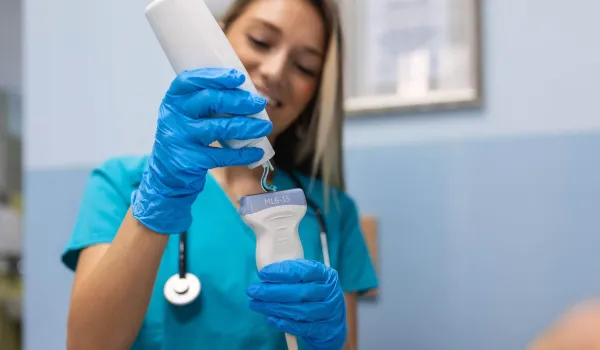
Chief among "the things they don't teach you in school" is how the behaviors of others and demands of the workplace affect our job satisfaction - and this is true whether you're working at a hospital, bank, corporate office or elsewhere. We're all prone to burnout in our careers, and you might experience it working in health care, too, due to the sometimes stressful situations physicians and medical staffs deal within the care of others.
According to a Medscape Physician and Lifestyle Report, 46% of physicians have suffered from burnout. For people in these positions, burnout can be serious, resulting in unprofessional interactions with patients and peers and other negative ramifications, such as job termination and divorce.
But this doesn't mean you are without tools to deal with stress and burnout at work. Recognize the signs and symptoms as they begin to emerge so you can stop its progression at its earliest stages.
signs to look for
A chaotic workflow. Physicians who work in a chaotic environment are much more likely to suffer from burnout due to increasing levels of frustration and stress. A chaotic workflow can be remedied by quality improvement measures that address and simplify each process.
Family sacrifices. Physicians who miss important events such as a child's graduation or the death of a parent often experience mental and emotional burnout as a result. Physicians should carefully explore each employer's policy on time off and commit to putting these important family events first when the time comes.
Personal sacrifices. Taking care of themselves should be just as important as taking care of their patients. Physicians should take special measures to maintain the things that were important to them before they became licensed, whether that means staying in shape, reading or connecting with their spirituality.
Poor leadership. Physicians who feel their leader does not support or understand their values and practice are at an increased risk of burnout. Sometimes the remedy is simply a heart-to-heart talk to reconnect on shared professional goals.
Ignoring stress. Working in the medical field brings significant stress; doctors who don't acknowledge and work through the stress they experience after losing a patient, struggling with a difficult patient, or missing a big family event due to work eventually may find that the stress becomes unmanageable. Physicians should debrief after a traumatic event and specifically identify stressors in order to better deal with them in the future.
Tips for De-Stressing
Trying to do it all sometimes means that we do very little well. Whether at work or pursuing a health care training education life doesn't have to be stressful.
The hustle and bustle nature of the hands-on health care programs offered at Concorde or current job might mean you strategically plan your days. But we're confident that being able to pursue your passions will be worth it!
There are days you'll feel maxed out, even with your eye on the prize. We're committed to coming alongside you on those days and championing you through to sunnier skies, however.
Here are five ways to help you de-stress:
1. Exercise helps in health care training education
We won't ask you to run a marathon. Even a 5-10-minute walk can do wonders to combatting the negative hormones that rear their ugly heads when we get stressed.
According to the Anxiety and Depression Association of America, "When stress affects the brain, with its many nerve connections, the rest of the body feels the impact as well … Scientists have found that regular participation in aerobic exercise has been shown to decrease overall levels of tension, elevate and stabilize mood, improve sleep and improve self-esteem. Even five minutes of aerobic exercise can stimulate anti-anxiety effects."
Channel something you love into a way to work up a sweat. Whether it's a walk, a hike, a jog or dance, lace up your shoes and in the words of T. Swift, "Shake it off!"
2. Bring a social media cooking video to life
Did you know that many mental health clinics have started integrating cooking into their behavioral therapy plans?
There's something so gratifying about actively engaging and being present in creating something. And, for all intents and purposes, it's instantly gratifying.
Perhaps Charlotte Rudge of the Huffington Post got it right when she contended, "Creatively, there's something about losing yourself to the flow and process that's healing. It's a chance to flourish and shine, and the relatively easy learning curve gives one a sense of personal growth and mastery."
3. Revisit an old passion
Sometimes, we need to be reminded of what we used to love to do. How long has it been since you played a round of golf or walked through Hobby Lobby and bought supplies to do a craft?
Don't feel guilty. It's important to make time to do things that make us happy!
4. Do something nice for someone else
Speaking of doing things that make us happy, how about doing something for someone else?
"One of the great ironies of life is this: He or she who serves almost always benefits more than he or she who is served." - Gordon Hinckle
Science backs it up, too. Forbes references a Corporation for National & Community Service report which noted: "Research demonstrates that volunteering leads to better health… those who volunteer have lower mortality rates, greater functional ability and lower rates of depression later in life than those who do not volunteer."
5. Set realistic expectations for your health care training education
Often stress is brought on by overcommitting or underestimating the time a task takes.
Give yourself a little breathing room by budgeting twice the amount of time you think it will take to get something done. Whether it's not having to drive as fast from point A to point B or not feeling as rushed getting out the door, no one was ever displeased by having a little wiggle room.
As always, never shoulder your stress alone, talk to someone, whether its a counselor, parent or friend. Taking care to recognize the early signs of burnout and stress are vital to both a successful career and to the community you serve.
Take The Next Step Towards a Brighter Future
We have a Concorde representative ready to talk about what matters most to you. Get answers about start dates, curriculum, financial aid, scholarships and more!




